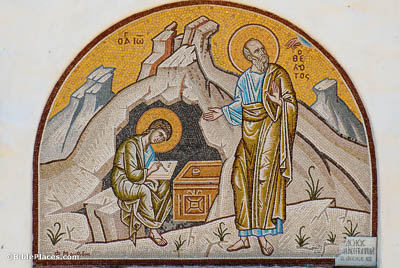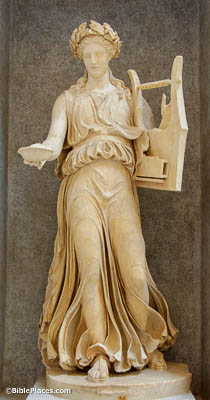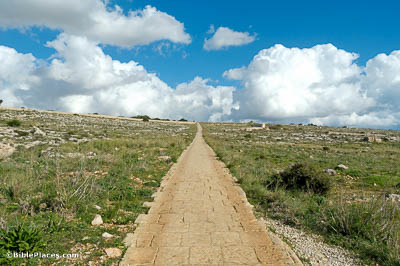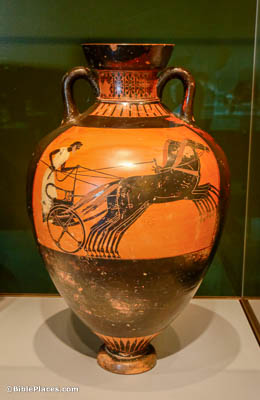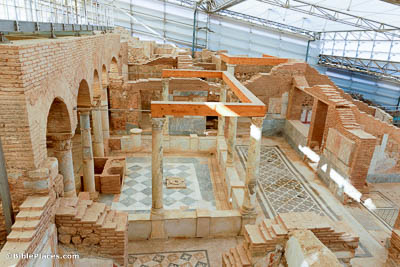The elder to the chosen lady and her children, whom I love in truth (2 John 1).
John has traditionally been identified as the author of this epistle, even though he does not identify himself by name in the document. Note that Peter also called himself an “elder” (1 Peter 5:1), which suggests that the apostles considered themselves to be elders as well. This mosaic, from the Holy Cave of the Apocalypse chapel on the Isle of Patmos, depicts John in the act of dictating.
